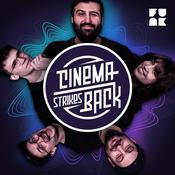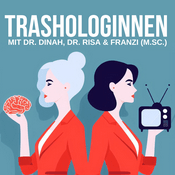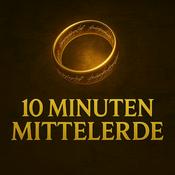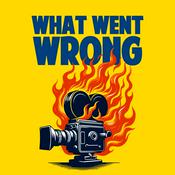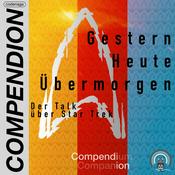51 Episoden

Rewriting history in Aleksandr Askoldov’s Commissar
15.12.2025 | 16 Min.
We’ve reached the end of season 5! Thank you to everyone for listening along. We’ll be back in 2026, but for now, happy holidays and speak to you soon. To close out the season, we’re returning to the ever-expanding archive of writing on the Klassiki Journal and an essay on one of the great lost talents of the Soviet studio system. Aleksandr Askoldov only completed one feature film in his career, 1967’s excoriating anti-war drama Commissar, before falling foul of the censors and disappearing into obscurity. But the film remains a landmark for its deconstruction of Soviet mythology and its treatment of the USSR’s Jewish population. Klassiki favourite, writer and researcher Alisa Goruleva explores how Askoldov ended up on the wrong side of the censors but the right side of history. Read the original piece here and watch Commissar on Klassiki now. Get in touch: [email protected] Sign up for a free 7-day trial at klassiki.online.

The Klassiki Kino Club: An Unusual Exhibition
08.12.2025 | 35 Min.
Friend of the show Alisa Goruleva is back on the pod this week for the latest edition of the Kino Club, our watch-a-long exploration of Klassiki’s film catalogue. As always, host Sam Goff set Alisa the task of picking a title from our library that she hadn’t seen before to discuss. Her choice this time around was very fitting: An Unusual Exhibition, the 1968 comedy of artistic frustration by the great Georgian filmmaker Eldar Shengelaia, who sadly passed away in August of this year. Alisa and Sam pay tribute to Shengelaia before exploring the film’s strange blend of tones, its disorienting narrative style, and its treatment of the eternal figure of the downtrodden artist. Watch along with us on Klassiki now! Subscribers will find a host of bonus materials that we put together as part of our celebration of Shengelaia’s 90th birthday a few years ago – including an interview with the great man himself. Get in touch: [email protected]. Sign up for a free 7-day trial at klassiki.online.

Deciphering The Saragossa Manuscript
01.12.2025 | 43 Min.
Listeners may remember our conversation earlier this year with Michael Brooke celebrating the centenary of Wojciech Has – one of Poland’s greatest and most misunderstood directors. We’re taking one last opportunity to honour Has’s hundredth anniversary year: right now until Christmas Day, subscribers can enjoy a restored version of his mind-bending masterpiece The Saragossa Manuscript. Adapted from a founding classic of Polish literature, the film presents a surreal odyssey across time and space that nests stories within stories to baffling and hypnotic effect. To unpack the film, Sam invited old friend of the show, film writer and historian Ian Christie, to join him in deciphering the Manuscript: from the source novel to the film’s daring formal tricks, its place in sixties counterculture, its long critical re-evaluation, and its profound influence on everyone from Luis Buñuel to David Lynch. Watch The Saragossa Manuscript on Klassiki until 25th December. Listen to our episode on the life and times of Wojciech Has here. Read Daniel Bird’s essay on Has’s surreal literary adaptations here. Get in touch: [email protected]. Sign up for a free 7-day trial at klassiki.online.

Lucian Pintilie: godfather of the Romanian New Wave
24.11.2025 | 15 Min.
For this episode, we’re dipping back in to the archive of writing on the Klassiki Journal for a profile of the great Romanian director Lucian Pintilie, whose provocative, modernist work bridges the gap between communist-era filmmaking and the New Wave that has defined Romanian cinema in the 21st century. Subject to censorship and exile, Pintilie returned to his homeland in the 1990s to cement his legacy and influence a new generation of directors. Read the original piece here and make sure to check out Pintilie’s classic satire Reconstruction as well as our collection of classic Romanian titles. Get in touch: [email protected] Sign up for a free 7-day trial at klassiki.online.

Eastern notions: celebrating Ali Khamraev
17.11.2025 | 34 Min.
Central Asia remains a great blindspot for many Western cinephiles – so we were thrilled to hear about an upcoming season in New York, hosted by the Asia Society in partnership with Anthology Film Archives. Eastern Notions is a celebration of the great Uzbek director Ali Khamraev, one of the true masters of Central Asian cinema, with more than 20 features in a career stretching back to the 1960s. Running from 20-23 November, the season highlights five of Khamraev’s fiction films, with the great man making a rare appearance in the States to attend in person. To mark the occasion, host Sam Goff spoke with the season’s curator Inney Prakash about Khamraev’s diverse body of work, his relationship with more famous Soviet icons like Andrei Tarkovsky and Sergei Parajanov, and the question of curating Central Asian film. Listeners in New York, don’t miss out: Eastern Notions runs from 20-23 November at Asia Society and Anthology Film Archives. Read our 2021 interview with Ali Khamraev for further insight into his long and fruitful career. Klassiki subscribers can watch Khamraev’s poetic and autobiographical film I Remember You on the site now. Get in touch: [email protected]. Sign up for a free 7-day trial at klassiki.online.
Weitere TV und Film Podcasts
Trending TV und Film Podcasts
Über The Klassiki Podcast
Höre The Klassiki Podcast, Zwei wie Pech & Schwafel und viele andere Podcasts aus aller Welt mit der radio.at-App

Hol dir die kostenlose radio.at App
- Sender und Podcasts favorisieren
- Streamen via Wifi oder Bluetooth
- Unterstützt Carplay & Android Auto
- viele weitere App Funktionen
Hol dir die kostenlose radio.at App
- Sender und Podcasts favorisieren
- Streamen via Wifi oder Bluetooth
- Unterstützt Carplay & Android Auto
- viele weitere App Funktionen


The Klassiki Podcast
App laden,
loshören.



